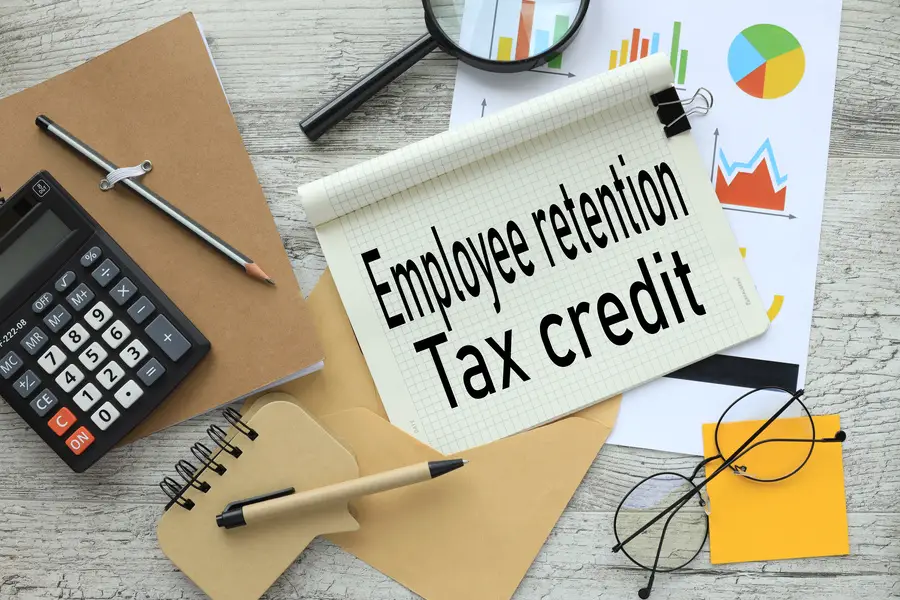We are finding that, all too often, taxpayers that make Employee Retention Tax Credit (ERTC) claims by engaging a so-called “ERTC Mill” are never told of their responsibility to amend their applicable prior year federal income tax return(s), and are shocked to learn that they owe additional taxes, penalties and interest. In order to offset their wage expense for the amount of the credit claimed, taxpayers who file an amended Form 941-X to claim an ERTC refund must simultaneously file an amended income tax return(s) for the tax year(s) in which the ERTC-eligible wages were paid. Because of the resulting lower salary expense, this results in a higher tax burden for taxpayers with sizable ERTC refunds. Reasonable Cause Penalty Relief To the extent an ERTC was retroactively claimed,...

The credit for increasing research activities, often referred to as the research and development (R&D) credit, is a valuable tax break available to certain eligible small businesses. Claiming the credit involves complex calculations, which we’ll take care of for you. But in addition to the credit itself, be aware that there are two additional features that are especially favorable to small businesses: Eligible small businesses ($50 million or less in gross receipts for the three prior tax years) may claim the credit against alternative minimum tax (AMT) liability. The credit can be used by certain smaller startup businesses against their Social Security payroll and Medicare tax liability. Let’s take a look at the second feature. The Inflation Reduction Act (IRA) has doubled the amount of the payroll tax...
If you want to withdraw cash from your closely held corporation at a low tax cost, the easiest way is to distribute cash as a dividend. However, a dividend distribution isn’t tax efficient since it’s taxable to you to the extent of your corporation’s “earnings and profits,” but it’s not deductible by the corporation. 5 different approaches Thankfully, there are some alternative methods that may allow you to withdraw cash from a corporation while avoiding dividend treatment. Here are five possible options: 1. Salary. Reasonable compensation that you, or family members, receive for services rendered to the corporation is deductible by the business. However, it’s also taxable to the recipient(s). The same rule applies to any compensation (in the form of rent) that you receive from the corporation...
A recent report shows that post-pandemic global business travel is going strong. The market reached $665.3 billion in 2022 and is estimated to hit $928.4 billion by 2030, according to a report from Research and Markets. If you own your own company and travel for business, you may wonder whether you can deduct the costs of having your spouse accompany you on trips. Is your spouse an employee? The rules for deducting a spouse’s travel costs are very restrictive. First of all, to qualify for the deduction, your spouse must be your employee. This means you can’t deduct the travel costs of a spouse, even if his or her presence has a bona fide business purpose, unless the spouse is an employee of your business. This requirement prevents tax...
Businesses basically have two accounting methods to figure their taxable income: cash and accrual. Many businesses have a choice of which method to use for tax purposes. The cash method often provides significant tax benefits for eligible businesses, though some may be better off using the accrual method. Thus, it may be prudent for your business to evaluate its method to ensure that it’s the most advantageous approach. Eligibility to use the cash method “Small businesses,” as defined by the tax code, are generally eligible to use either cash or accrual accounting for tax purposes. (Some businesses may also be eligible to use various hybrid approaches.) Before the Tax Cuts and Jobs Act (TCJA) took effect, the gross receipts threshold for classification as a small business varied...
When launching a small business, many entrepreneurs start out as sole proprietors. If you’re launching a venture as a sole proprietorship, you need to understand the tax issues involved. Here are nine considerations: 1. You may qualify for the pass-through deduction. To the extent your business generates qualified business income, you’re currently eligible to claim the 20% pass-through deduction, subject to limitations. The deduction is taken “below the line,” meaning it reduces taxable income, rather than being taken “above the line” against your gross income. However, you can take the deduction even if you don’t itemize deductions and instead claim the standard deduction. Be aware that this deduction is only available through 2025, unless Congress acts to extend it. 2. You report income and expenses on Schedule...
The Employee Retention Tax Credit (ERTC) was introduced back when COVID-19 temporarily closed many businesses. The credit provided cash that helped enable struggling businesses to retain employees. Even though the ERTC expired for most employers at the end of the third quarter of 2021, it could still be claimed on amended returns after that. According to the IRS, it began receiving a deluge of “questionable” ERTC claims as some unscrupulous promotors asserted that large tax refunds could easily be obtained — even though there are stringent eligibility requirements. “We saw aggressive marketing around this credit, and well-intentioned businesses were misled into filing claims,” explained IRS Commissioner Danny Werfel. Last year, in a series of actions, the IRS began cracking down on potentially fraudulent claims. They began with...
As part of the SECURE 2.0 law, there’s a new benefit option for employees facing emergencies. It’s called a pension-linked emergency savings account (PLESA) and the provision authorizing it became effective for plan years beginning January 1, 2024. The IRS recently released guidance about the accounts (in Notice 2024-22) and the U.S. Department of Labor (DOL) published some frequently asked questions to help employers, plan sponsors, participants and others understand them. PLESA basics The DOL defines PLESAs as “short-term savings accounts established and maintained within a defined contribution plan.” Employers with 401(k), 403(b) and 457(b) plans can opt to offer PLESAs to non-highly compensated employees. For 2024, a participant who earned $150,000 or more in 2023 is a highly compensated employee. Here are some more details of this...
Operating your small business as a Qualified Small Business Corporation (QSBC) could be a tax-wise idea. Tax-free treatment for eligible stock gains QSBCs are the same as garden-variety C corporations for tax and legal purposes — except QSBC shareholders are potentially eligible to exclude from federal income tax 100% of their stock sale gains. That translates into a 0% federal income tax rate on QSBC stock sale profits! However, you must meet several requirements set forth in Section 1202 of the Internal Revenue Code, and not all shares meet the tax-law description of QSBC stock. Finally, there are limitations on the amount of QSBC stock sale gain that you can exclude in any one tax year (but they’re unlikely to apply). Stock acquisition date is key The 100% federal...
If you’re an employer with a business where tipping is routine when providing food and beverages, you may qualify for a federal tax credit involving the Social Security and Medicare (FICA) taxes that you pay on your employees’ tip income. Credit fundamentals The FICA credit applies to tips that your staff members receive from customers when they buy food and beverages. It doesn’t matter if the food and beverages are consumed on or off the premises. Although tips are paid by customers, for FICA purposes, they’re treated as if you paid them to your employees. As you know, your employees are required to report their tips to you. You must: Withhold and remit the employee’s share of FICA taxes, and Pay the employer’s share of those taxes. How the...











